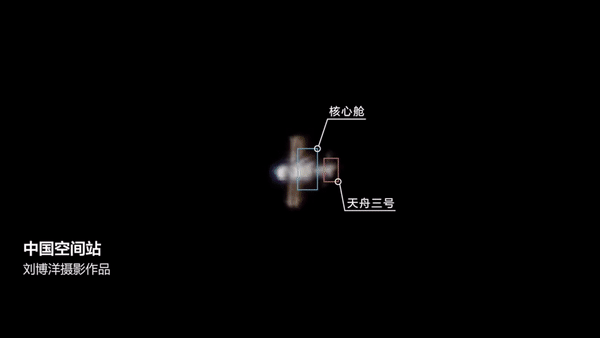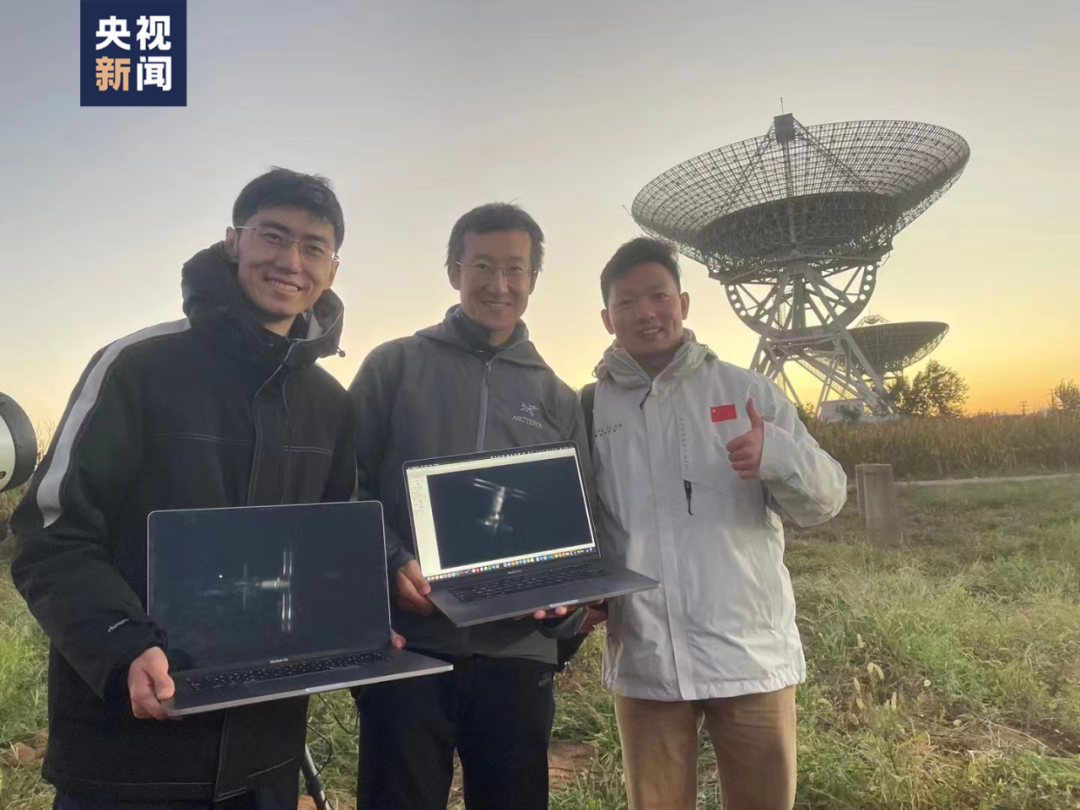
The China Space Station captured by Liu Boyang and his team. /CMG
The China Space Station captured by Liu Boyang and his team. /CMG
A Chinese astronomy enthusiast, Liu Boyang, took hundreds of thousands of photos of the China Space Station (CSS) with a self-developed automatic tracking script for optical recognition, according to China Media Group on Friday.
Starting in April, Liu and his team have been chasing the space station and has recorded over 50 configuration changes from Beijing and south China's Hainan Province.
He captured the Tianzhou-3 cargo spacecraft's separation from its core module, the Shenzhou-14 spacecraft's launch and the Mengtian Lab Module's docking with the core module among others.
Liu's has the highest-definition close-up CSS photographs, according to China Media Group.

Liu Boyang (L) and his team show the China Space Station they captured next to the Miyun Observatory of the National Astronomical Observatories under Chinese Academy of Sciences. /CMG
Liu Boyang (L) and his team show the China Space Station they captured next to the Miyun Observatory of the National Astronomical Observatories under Chinese Academy of Sciences. /CMG
Common methods for shooting celestial bodies are not suitable for taking higher-precision photos of the space station. Therefore, astronomy enthusiasts have to rely on programming to realize tracking and shooting.
Given some of the disadvantages of the current methods, Liu came up with his own plan – writing an automatic tracking script for optical recognition, then manually finding the space station and framing the tracking based on the control of proportional, integral and differential units.
it took a lot of trial and error before Liu finally fixed the bug and verified the function of the program this April. By then, the code he wrote had increased from 400 lines to 600.
When asked about his plan for the future, the 32-year-old astronomer said that he had been preparing himself to record the Tianzhou-5 cargo spacecraft and Shenzhou-15 spaceflight and it would be his lifetime commitment to exploring every possibility to show people the sky and help them learn about space and the universe.